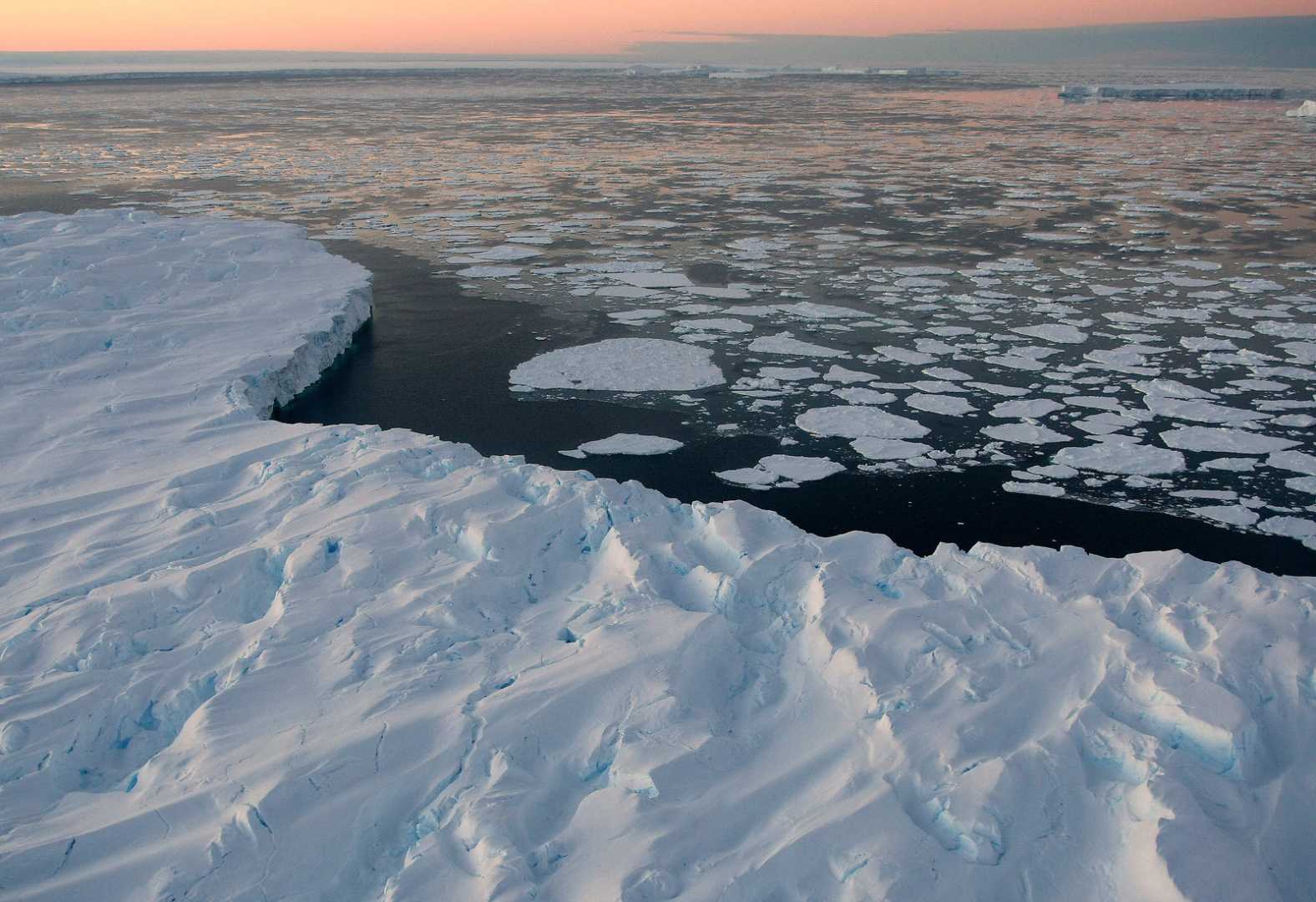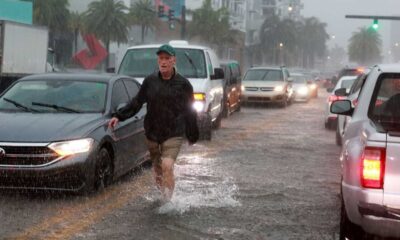News
Antarctica Faces Climate Tipping Point, Scientists Warn

London, UK — Scientists are raising alarms that Antarctica may have reached a climate tipping point, with evidence showing a dramatic decline in sea ice formation linked to human-induced ocean warming. Historically, Antarctic sea ice levels remained stable even as global temperatures rose, but this trend abruptly changed in 2016 when sea ice began to plummet.
In February 2023, Antarctic sea ice hit a new record low for summer, marking the third record-breaking summer sea ice minimum in just seven years. Additionally, September 2023 saw a record low maximum for Antarctic sea ice.
Experts at a recent meeting held at the Royal Society in London discussed evidence suggesting that this rapid decline may signify a tipping point. Researchers from the University of California, Los Angeles, argue that the sudden changes cannot be attributed solely to natural climate variability.
Using proxy data from Antarctic weather stations, researchers extended sea ice records back to the early 20th century. They found that the chances of the 2023 sea ice minimum occurring based on historical data was less than 0.1 percent. Raphael, a researcher, noted, “We really are looking at extreme behaviour in terms of sea ice,” during her presentation.
Scientists indicated that the recent changes could have significant long-term effects on Antarctic climate and ecology. Haumann from the Alfred Wegener Institute stated, “What we are witnessing is that the entire Antarctic sea ice is responding as a whole,” emphasizing the seriousness of the situation.
Warming of deep ocean waters, which make up about 90 percent of the heat absorbed by the atmosphere, is believed to be driving the decline in sea ice. Recent research suggests that changes in wind patterns and salinity have weakened the boundary separating warmer deep waters from the cold surface waters, leading to increased upwelling and accelerated ice loss.
Haumann explained that reversing these changes would require a significant alteration in ocean salinity or a reduction in the upwelling effect. However, any future system responses remain uncertain, potentially leading to catastrophic repercussions.
The decline in Antarctic sea ice threatens to destabilize glaciers and ice sheets, leading to accelerated melting and significant global sea-level rise. Scientists warn that the Antarctic ice sheet alone holds enough water to cause a rise of more than ten meters.
The loss of sea ice will also impact Earth’s reflectivity, as dark ocean waters absorb more solar heat than reflective ice, further contributing to global warming. Moreover, the potential release of hundreds of gigatonnes of carbon from deep waters could exacerbate climate change.
As scientists begin to understand these profound climate feedback effects, they stress the urgency of addressing these changes. The Royal Society meeting aims to foster stronger connections between Antarctic science and global policy, emphasizing the need for immediate action to protect future generations.












